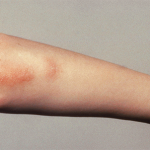Thanks to research advances in the last decade, we now have a better understanding of the clinically dramatic and often devastating condition known as macrophage activation syndrome (MAS). As a result, says Alexei A. Grom, MD, associate professor of pediatrics at the Cincinnati Children’s Hospital Medical Center, “We are now learning how to watch for the early signs of this condition, treat those patients more aggressively, and prevent the progression of the syndrome to its life-threatening stage.”
In “Macrophage Activation Syndrome: Clinical Presentation and Disease Mechanisms,” presented at the 2009 ACR/ARHP Annual Scientific Meeting in Philadelphia, Dr. Grom outlined the advances in cellular immunology that are contributing to our increasing understanding of MAS. His copresenter, James Verbsky, MD, PhD, assistant professor of pediatrics and microbiology at the Medical College of Wisconsin in Milwaukee, offered two clinical cases that illustrated the diagnostic concepts that he and Dr. Grom discussed.
Features of the Syndrome
First described in 1979 and defined in 1985, MAS is a potentially fatal complication seen in several rheumatic conditions, including systemic erythematous lupus (SLE) and Kawasaki’s disease.1,2 However, it is most commonly found in systemic juvenile idiopathic arthritis (SJIA). The condition is characterized by excessive activation and proliferation of T cells and well-differentiated non-neoplastic macrophages, Dr. Grom explained. These macrophages exhibit hemophagocytic activity, which leads to a complete destruction of normal hemapoietic elements in the bone marrow. The three cardinal features of MAS are cytopenias, liver dysfunction, and coagulopathy consistent with disseminated intervascular coagulation (DIC). “MAS is also associated with massive systemic inflammation,” he added. “Presentation is often dramatic. Patients develop persistent fevers and impressive generalized lymphadenopathy and hepatosplenomegaly.” Hemorrhagic rash is also characteristic, starting with easy bruising and progressing to severe purpuric lesions and mucosal bleeding. The latter symptoms are found in late-stage disease, along with central nervous system dysfunction. A life-threatening condition, MAS is associated with a 20–30% mortality rate.
What Goes Awry?
“Clinically, MAS is very similar to familial hemophagocytic lymphohistiocytosis [FHLH], a constellation of rare diseases associated with genetic defects that lead to profound depression of cytolytic function of natural killer [NK] cells and cytotoxic CD8 lymphocytes,” Dr. Grom continued. Research has shown that diminished NK cell function in about 40% of FHLH patients is caused by mutations in the perforin gene (PRF1). This research has now yielded a bonus for MAS researchers, Dr. Grom noted, because similar cytolytic defects are seen in patients with SJIA and MAS.
